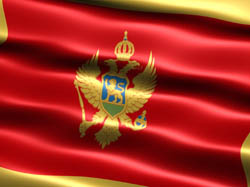Strengthening research in Montenegro
Montenegro, an official candidate for EU membership, is a small country that can benefit significantly from the bloc's support of research and development (R&D). Efforts are already underway to enhance international research cooperation opportunities involving Montenegro with the aim of achieving a more competitive economy. The EU-funded project 'Montenegrin researchers' mobility network' (EURAXESS MONTENEGRO) worked on strengthening tertiary education to develop the country's human capital, focusing in particular on the mobility of students and researchers. In this light, the project created a national infrastructure for supporting incoming and outgoing mobility of researchers. It developed the local Euraxess portal for the small nation to provide information and services related to the mobility of researchers and career development. In addition, the project team raised awareness regarding the network among the country's research community, highlighting opportunities for researchers and establishing close ties with other regional Euraxess network members. As a result of these initiatives, the Euraxess service centre was established at the University of Montenegro. It featured a powerful management structure and steering group involving key figures from the country's R&D landscape, with the participation of all Montenegro's three universities. Moreover, the project's efforts have also seen the preparation of a comprehensive guide in English with pivotal information for incoming researchers to Montenegro. This included information about visa requirements, recognition of diplomas, education, social security, health care and intellectual property rights (IPR) related to research. Another guide for outgoing researchers documented information on funding, finding jobs and obtaining a visa for researchers. Several training sessions, info days and workshops helped communicate the project's results, guidelines and achievements to stakeholders, contributing to stronger researcher mobility. The project is set to raise the Montenegrin research community's credibility at national and international levels, adding valuable support to the country's academic landscape. Montenegro will emerge as a stronger player in the European R&D arena, paving the way for its eventual entry into the EU and the European Research Area (ERA).



